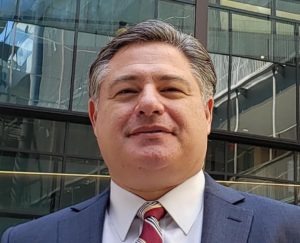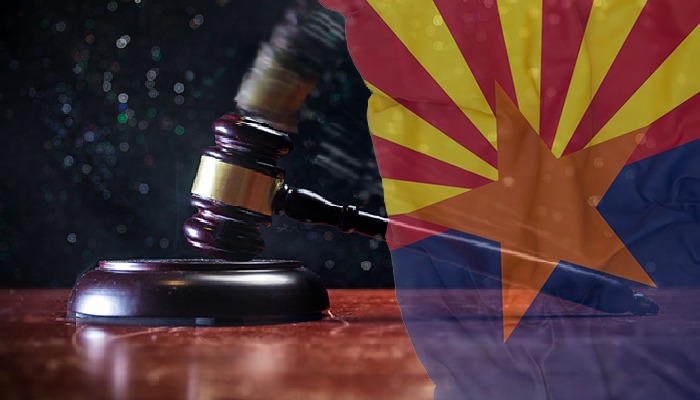BY MIKEL WEISSER
“AMMA defines “marijuana” as “all parts of [the] plant.” § 36-2801(8). The word “all,” one of the most comprehensive words in the English language, means exactly that.”—Arizona Supreme Court
Kinda says it all, huh?
Tuesday, May 28th at precisely 10am, the Arizona Supreme Court announced its decision on the Jones Case and reversed the 2013 Rodney Jones’ conviction on class four felony narcotics charges. In unison, two hundred thousand Arizonans collectively exhaled a sigh of relief. The anxiously anticipated decision echoed around the state and even the nation in a matter of minutes.
The verdict was clear: total reversal. The concentrates charges that helped send Rodney Jones to prison have been vacated. All the class four felony cannabis narcotics charges pending for patients around the state will have to be withdrawn. Those already convicted will have their charges overturned. And the Arizona cannabis industry, which depends for as much as sixty percent of its revenue from various types of concentrates products, is saved.
(Read the full Jones Decision here State v. Jones Opinion.Final)
Today you will hear lots of opinions on the impact of the verdict. Here are five of AZ MMJ’s most important legal voices on their impressions of the decision.

Robert Mandel is the attorney who took the case to the Supreme Court. Despite being inundated with calls and requests for interviews, Mandel took a minute to reflect on the hard-fought victory.
“The two most important paragraphs are paragraph 15 and paragraph 19.
Paragraph 15: As stated above, AMMA extends to manufactured marijuana products using extracted resin. See supra ¶ 10. Under § 36-2801(15), these products are “mixture[s] or preparation[s]” of the dried flowers of the marijuana plant. We therefore read § 36-2801(1) and (15) to mean qualifying patients are allowed two-and-one-half ounces of dried flowers, or mixtures or preparations made from two-and-one-half ounces of dried flowers.
Paragraph 19: We hold that the definition of marijuana in § 36-2801(8) includes resin, and by extension hashish, and that § 36-2811(B)(1) immunizes the use of such marijuana consistent with AMMA. We reverse the trial court’s ruling denying Jones’s motion to dismiss, vacate the court of appeals’ opinion, and vacate Jones’s convictions and sentences.
The implication is that patients should be immune from any prosecution in the future for possessing any product made with extracted cannabis resin, provided they are otherwise complying with the AMMA. The social impact is that all those patients around the state who are being prosecuted or even worse, have already been convicted of narcotics cannabis charges should be immediately relieved of that burden.”

Ryan Hurley, one of AZ cannabis’ most important business lawyers fought many of the early legal challenges to the fledgling AMMA program and later served as campaign lawyer for the Prop205 Campaign. Currently, Hurley serves as in-house counsel for Copperstate Farms, one of America’s largest cultivation facilities.
“The AZ courts have been reliable in upholding the will of the voters in the face of baseless attacks and consistent overreaches by prosecutors. No patient should ever be afraid simply for using their medicine.”

Dr Will Humble served as the original DHS Director tasked with creating the state’s medical marijuana industry after the citizens passed Prop203 in November of 2010. Humble knew from the beginning that concentrates had been an integral part of his understanding of AMMA when he was shaping the program. Aghast at the Jones Case, Humble contributed an amicus brief supporting Jones.
“Today’s ruling from the AZ Supreme Court that extracts and resins are protected under the Arizona Medical Marijuana Act provides a sigh of relief for Arizona’s medical marijuana program and participating qualified patients. I had confidence that the Court would read the statutory language approved by the voters plainly, and they did. The language was clear and unambiguous. Arizona’s medical marijuana program can now press ahead and continue to provide relief for qualified patients without the prosecutorial cloud that has been hanging over the program for the last few years.”

Tom Dean, one of Arizona’s top criminal defense attorneys, serves as the legal counsel for the Arizona Chapter of NORML and is national NORML’s former legal counsel. Dean helped write one of the briefs in the case.
“The good news is that the patients can clearly possess and use cannabis extracts. Full stop. All and all, this is a fantastic decision for the countless patients already facing charges and the two hundred thousand of us whose lives have been threatened by the appeals court decision.
Also, good news is the court embraced an interpretation I have been championing for a while now, that protect patients’ rights to manufacture their own extracts. This could be the next battle though the court devoted an entire paragraph to question. I have a pending case around this issue right now.
Unfortunately, there’s also a black lining around this silver cloud. Perhaps as a nod to the state’s case, the Supreme Court also cited the original AMMA language to rule that, since a patient can legally possess up to two and a half ounces of dried flower, and AMMA protects extracts, then they should only be allowed to possess as much concentrate as could be produced from two and a half ounces of dried flower. As any one familiar with the extraction process will assure you, two and a half ounces of dried flower will only produce so much. And this begs the question, what if the patient decided to produce a concentrated product out of the leaves and not the dried flower? How will this limiting language effect that?”

Gary Smith, as the head of the Arizona Cannabis Bar Association, not only helped draft his organization’s brief in the case, but also helped Arizona NORML prepare a defense for the earlier, Apache County Jake Ruether case in the fall of 2017, which touched on all of the same issues. Smith is also a columnist for Arizona Cannabis Monthly.
“Tuesday’s ruling from the Supreme Court in State v. Jones simultaneously removes another foundation stone from the wall of cannabis bigotry and confirms that the will of the people of Arizona is still the true source of government.
In a unanimous decision, the Arizona Supreme Court voted to reverse and to vacate the Court of Appeals’ 2018 opinion that marijuana extracts and concentrates were not in the voters’ minds in 2010, when they voted for Proposition 203 the Arizona Medical Marijuana Act. The Court of Appeals’ 2018 opinion had declared all marijuana extracts and concentrates to be unlawful and outside the safe harbor protections of AMMA. Thus, for the past year, marijuana extracts and concentrates in all their forms have been illegal in Arizona.
Thankfully, the Supreme Court corrected this travesty on Tuesday, and acknowledged that Arizonans voted for medical marijuana consistent with the campaign literature and America’s rich history of cannabis, in which cannabis tinctures and extracts were part of US Pharmacopeia throughout the 19th and into the 20th centuries.
For patients, reversal of the Court of Appeals restores the ability to consume medical marijuana extracts and concentrates. For the industry, the decision means preservation of roughly 50% of the market and tens of millions of dollars invested. For Rodney Jones though, it means small solace. The Supreme Court opinion means removal of a felony conviction from Rodney Jones’ record, but Rodney Jones spent two years in jail on charges that ought never have been brought. That time is irreplaceably lost.
As you and the more than 200,000 fellow Arizonans who participate in the cannabis industry celebrate Tuesday’s victory, remember that biases and prejudices against cannabis are still alive and well. Remain vigilant in exercising your right of free will in the choices that affect your health. Celebrate and stay safe.”
–Mikel Weisser is the editor of Arizona Cannabis Monthly and state director of Arizona NORML.



